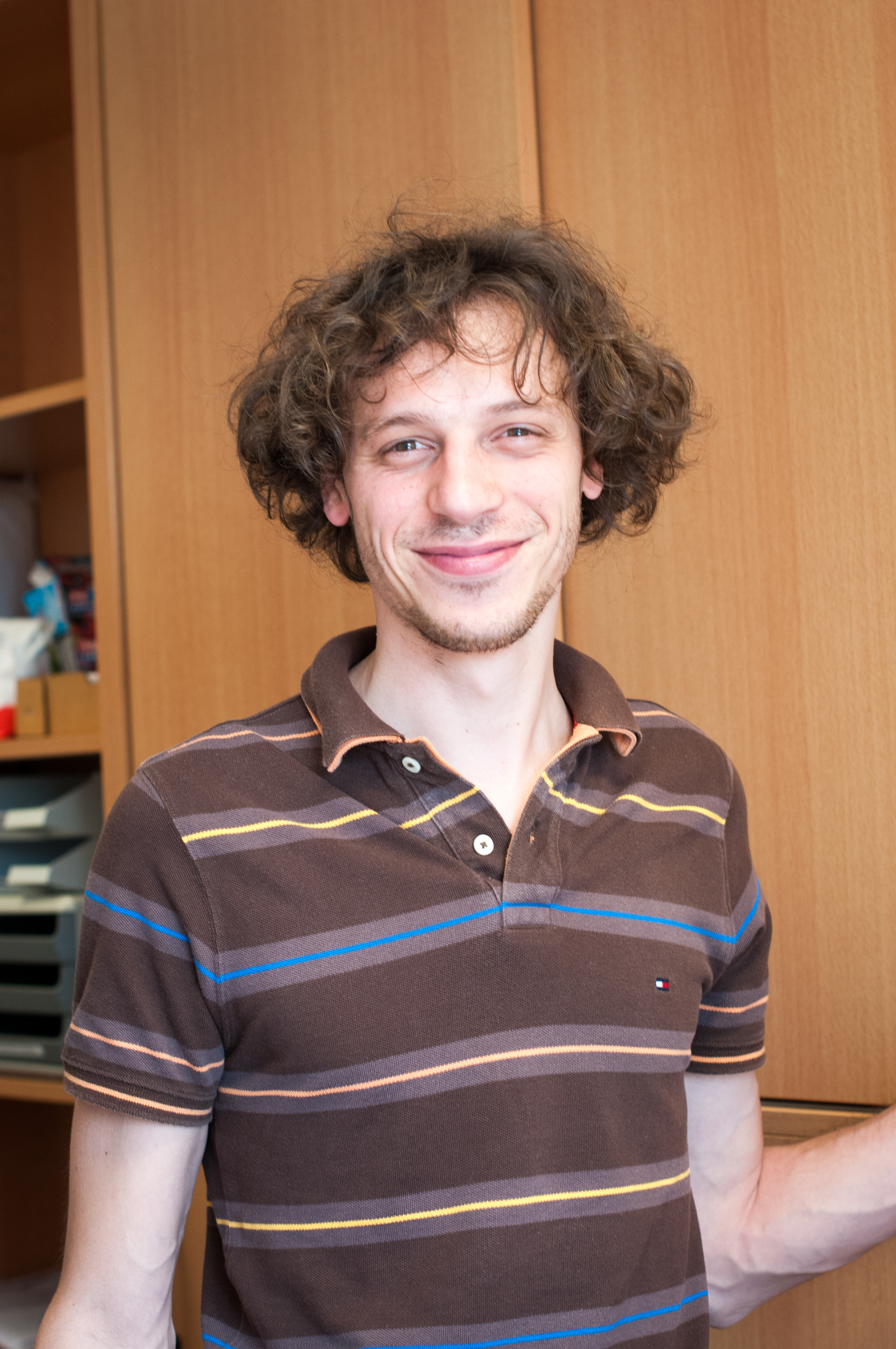Dr. Davide Francioli
Contact / Address
Dr. Davide Francioli
Post-Doc
Guest Researcher
Department of Soil Ecology
Helmholtz Centre for Environmental Research - UFZ
Theodor-Lieser-Strasse 4 | D-06120 Halle/Saale
Germany
davide.francioli@ufz.de
Current address:
Dr. Davide Francioli
Post-Doc
Wageningen University
Department of Environmental Science
Plant Ecology and Nature Conservation
Droevendaalsesteeg 3
6708 PB Wageningen
The Netherlands
Email: davide.francioli@wur.nl
Phone: +31 (0) 317483813

Current position
2017
Post-Doc, Department of Environmental Sciences, Wageningen University, The Netherlands
Previous scientific positions
1/11/2012 - 30/06/2016
2012
PhD student, Department of Soil Ecology,Helmholtz Centre for Environmental Research Halle - UFZ
Scientific Researcher
Italian Agricultural Research Council (CRA)
Forestry Research Centre, Arezzo, Italy
2011
Student trainee and Laboratory assistant
Department of Plant, Soil and Environmental
Science (DIPSA), University of Florence, Italy
Degrees
2008- 2010
Master's degree in Agricultural Biotechnology
University of Florence (110/110 cum laude)
Master’s degree thesis: “Metagenomic approach in the bio-geographical study of bacterial communities of two European soils and in the adaptive study of these communities subjected to various stress.”
2003 - 2007
Bachelor's degree in Biotechnology
University of Florence
Graduation thesis title: “Construction and analysis of a genomic library of Pseudomonas savastanoi pv. nerii.”
Cooperations with other partners
D.A.CH-DecAlp
WP2: Soil microbiology
DecAlp ia a project dealing with the effects of climate on coarse woody debris Decay dynamics and incorporation into the soils of forested Alpine areas. The investigation area is located in Val di Rabbi in the south Alpine belt in northern Italy (Trentino).
Aims and Objectives
The increasing interest in the quantity and properties of deadwood is relevant both to maintaining biodiversity and to global C dynamics in forested areas. The effects of climate on the decomposition of deadwood and its subsequent influence on SOM is far from being fully understood and detailed investigations are missing. Therefore, there exists a need to delve deeper into the pathways of the decomposition of deadwood, the products emitted into the soil and their incorporation and significance for the stable and labile organic C pool in soils. Alpine areas have on the one hand stable organic matter with a very high age and on the other hand labile, young soils and consequently very reactive organic materials. Moreover, high-altitude ecosystems are predicted to experience a rapid warming in the future with distinct consequences for SOM quality and quantity, and/or for the activities of soil organisms. Nevertheless, up to now very little is known about the influence of multiple and interacting climate drivers on soil biological communities and their activities, as well as on the consequences for carbon- exchange feedbacks. All together this makes alpine areas an ideal setting so as to further study the interplay between climate, forests, deadwood and soils.
Publications
Francioli D, Schulz E, Buscot F, Reitz T (2017). Dynamics of Soil Bacterial Communities Over a Vegetation Season Relate to Both Soil Nutrient Status and Plant Growth Phenology. Microbial ecology, doi:10.1007/s00248-017-1012-0
Francioli D, Schulz E, Purahong W, Buscot F, Reitz T. (2016). Reinoculation elucidates mechanisms of bacterial community assembly in soil and reveals undetected microbes. Biology and Fertility of Soils, DOI: 10.1007/s00374-016-1141-5
Francioli D, Schulz E, Lentendu G, Wubet T, Buscot F, Reitz T. (2016). Mineral vs. organic amendments: microbial community structure, activity and abundance of agriculturally relevant microbes are driven by long-term fertilization strategies. Frontiers in Microbiology, http://dx.doi.org/10.3389/fmicb.2016.01446
Bardelli T, Gómez-Brandón M, Ascher J, Fornasier F, Arfaioli P, Francioli D, Egli M, Sartori G, Insam H, Pietramellara G (2016). Effects of slope exposure on soil physico-chemical and microbiological properties along an altitudinal climosequence in the Italian Alps. Science of the Total Environment, in press
Purahong W, Stempfhuber B, Lentendu G, Francioli D, Reitz T, Buscot F, Schloter M, Krüger D (2015). Influence of commonly used primer systems on automated ribosomal intergenic spacer analysis of bacterial communities in environmental samples. PLoS ONE 10: e0118967. doi:10.1371/journal.pone.0118967
Francioli, D, Ascher, J, Ceccherini, M.T, & Pietramellara, G. (2014). Land use and seasonal effects on a Mediterranean soil bacterial community. Journal of soil science and plant nutrition, 14(3), 710-722.
Delmont, T.O., Francioli, D., Jacquesson, S., Laoudi, S., Mathieu, A., Nesme, J., Ceccherini, M.T., Nannipieri, P., Simonet, P., Vogel, T.M. 2014. Microbial community and unseen diversity development in inoculated sterile soil. Biology and Fertility of Soil, DOI: 10.1007/s00374-014-0925-8
